SLC21/WK4: Mockups in Design and Application
Mockups are crucial design tools because they allow ideas to be visually represented before the finished product is created. In addition to print, device, and branding mockups, there are additional important kinds of mockups that are suited to particular sectors and uses. Here is a detailed explanation of these kinds:
other types of Mockups
- Product Mockups
Product mockups present digital or tangible goods in an authentic setting. They enable stakeholders and designers to see how a product will seem and work in the real world.
Uses:
- package Design: Used to create consumer products, food, or beverage package prototypes.
- Consumer Goods: Assists in visualising products such as clothing, mugs, or devices prior to manufacturing.
- E-commerce: Offers top-notch product photos for internet retailers.
Tools:
- Adobe Dimension
- Blender
- Placeit
Example:
A customer may see how their branding will look on the finished product with a coffee mug mockup that displays a personalised logo design.
- Website and UI/UX Mockups
Static representations of websites or app interfaces are known as website and UI/UX mockups. With an emphasis on aesthetics like font, colour schemes, and general layout, these are meticulous and aesthetically accurate wireframe versions.
Uses:
- Demonstrating how an application or website will appear across a range of devices.
- Gaining client feedback on layout and design before development.
- Visualising interactions, like dropdown menus and hover effects.
Tools:
- Figma
- Sketch
- Adobe XD
Example:
A travel agency website mockup gives clients a comprehensive picture of the user journey by displaying the homepage design, navigation bar, and interactive features.
- Interior Design Mockups
These mockups depict how an interior area will seem following construction or remodelling. They are frequently used to display layouts, furnishings, and décor in architectural and interior design projects.
Uses:
- Envisioning the layout of rooms for customers.
- Arranging furniture arrangement, lighting, and colour palettes.
- Realistic 3D renders are used to market interior design services.
Tools:
- AutoCAD
- SketchUp
- 3ds Max
Example:
A customer can make well-informed design decisions with the aid of an interior mockup of a living room that features contemporary furniture, lighting fixtures, and décor pieces.
- Fashion Mockups
Fashion mockups are used to showcase apparel and accessory designs in an eye-catching and polished manner. They are particularly well-liked by manufacturers, designers, and online retailers.
Uses:
- Seeing how designs, logos, or patterns will be displayed on clothing.
- Assisting fashion designers in their exploration of textures and designs.
- making promotional images for internet retailers.
Tools:
- Marvelous Designer
- Photoshop
- CLO 3D
Example:
A fashion brand can preview the finished look without making the actual garment by using a T-shirt mockup with a printed design.
- Architectural Mockups
Architectural mockups are intricate three-dimensional depictions of structures or scenery. Before building starts, they assist architects and other stakeholders in visualising projects.
Uses:
- Designing the arrangement of buildings, whether they are commercial, industrial, or residential.
- Providing clients with realistic exterior and interior images.
- Getting large-scale construction projects approved.
Tools:
- Revit
- SketchUp
- Lumion
Example:
A residential complex mockup provides developers with a thorough understanding of the project by showing the building facades, parking areas and landscaping.
- Social Media Mockups
Social media mockups show how profiles, posts, or advertisements will look on sites like Facebook, Instagram, and Twitter. Brands and marketers use these mockups to develop their social media campaigns.
Uses:
- Ad designs are tested prior to campaign launch.
- Maintaining a unified brand across all mediums.
- Seeing how banners or posts will appear in a live setting.
Tools:
- Canva
- Adobe Spark
- Mockup World
Example:
Brands may refine their language and design before publishing by using a social media mockup that shows an Instagram carousel ad structure.
- Game Mockups
Video game environments, characters, and user interfaces are all represented via game mockups. They are used to see how gameplay will appear and feel when a game is being developed.
Uses:
- Character animations and designs are tested.
- Designing user interfaces, environments, and gaming levels.
- Presenting ideas to stakeholders or investors.
Tools:
- Unity
- Unreal Engine
- ZBrush
Example:
Developers can hone their ideas prior to creation by using a racing game mockup that displays vehicle designs, course layouts, and UI components.
- Advertising Mockups
Advertising mockups demonstrate how a commercial will look on billboards, digital banners, and bus stops, among other media formats.
Uses:
- Campaign visualisation in authentic settings.
- Ad location and sizing are being tested.
- Presenting concepts to stakeholders or clients.
Tools:
- Placeit
- Adobe Photoshop
- Mockup Editor
Example:
When a new product is introduced, a billboard mockup lets customers see how the advertisement would appear on a busy city street.
- Mockups for Augmented Reality (AR) and Virtual Reality (VR)
For projects that use extended reality technology, VR and AR prototypes replicate enhanced elements or immersive settings.
Uses:
- Developing virtual environments for simulations, games, or training.
- Creating augmented reality experiences, including furniture arrangement tools or virtual try-ons.
- Prior to deployment, usability and functionality are tested.
Tools:
- Unity
- Unreal Engine
- Blender
Example:
Brands can increase customer engagement by using an augmented reality (AR) simulation of a furniture app that shows how a couch might appear in a user's home space.
- Packaging and Label Mockups
These are especially useful for showing how product labels and packaging will look. They are frequently employed in the food, beverage, and cosmetics sectors.
Uses:
- Examining several label designs for visual appeal.
- Verifying that designs adhere to branding standards.
- Presenting finished ideas to clients or stakeholders.
Tools:
- Boxshot
- Adobe Dimension
- Placeit
Example:
Prior to manufacturing, winemakers can improve their branding by using a mockup of a bottle with a personalised label.
Because of its adaptability, mockups can be used for almost any industry or goal. Each type ensures that concepts are visually verified and accepted prior to final manufacturing or implementation, which is crucial in bridging the gap between concept and reality.
Other importance of mockups
Mockups, which provide more than simply visual representations, are incredibly useful tools for marketing a product or brand. They are also essential in the following ways:
Showcase Product Functionality
Brands can use mockups to show how their goods or services work in actual environments. To assist prospective consumers visualise the usability and relevance of an app, a software business can use mockups to demonstrate how the interface appears on different devices.Pre-launch Testing and Feedback
Before a product is formally released, mockups offer a way to get user input. Teams can find possible problems or areas for development by showing stakeholders actual designs. This reduces the time and expense of post-launch adjustments.Create Emotional Connections
Brands can showcase their products in relevant or aspirational environments by utilising high-quality mockups. Lifestyle brands, for example, frequently utilise mockups to appeal to the desires of their target audience. For example, they might display a coffee mug design in a comfortable home setting.Consistent Brand Identity
Brand components like logos, typefaces, and colours are applied consistently across various platforms and materials with the use of mockups. This strengthens the brand's identity, increasing its memorability and recognition.Enhance Marketing Campaigns
Advertising campaigns can utilise mockups to present products in a professional manner without having to pay for actual production. For example, clothing companies frequently utilise digital mockups to present new ideas prior to production.Improve Client Presentations
Mockups facilitate the communication of ideas to clients for agencies or designers. Compared to flat designs, a well-designed mockup can communicate ideas more effectively, assisting clients in comprehending and approving the brand's goal.Boost Online Sales
Mockups are frequently used in e-commerce to show products in various settings or from various perspectives. Product listings are improved as a result, becoming more enticing and raising the possibility of conversions.Test Market Reactions
Mockups can be used by brands in focus groups, surveys, and social media to see how consumers respond to new offerings or branding concepts. This knowledge aids in improving the product to meet consumer demands.Simplify Collaboration
Mockups serve as a link between teams, including development, design, and marketing. They promote improved cooperation and alignment by making sure that all project participants have a clear grasp of the finished output.Cost Efficiency
Mockups offer a more affordable option than creating actual prototypes for each concept. Digital mockups are a cost-effective way to test out several concepts because they are simple to edit and modify.
Mockups are dynamic tools that influence design choices, engage audiences, and advance a consistent brand image. They are not only placeholders for finished products. Effective use of mockups can help brands enhance their marketing plans and forge closer bonds with their target audience.
t.shirt mockup and my logo
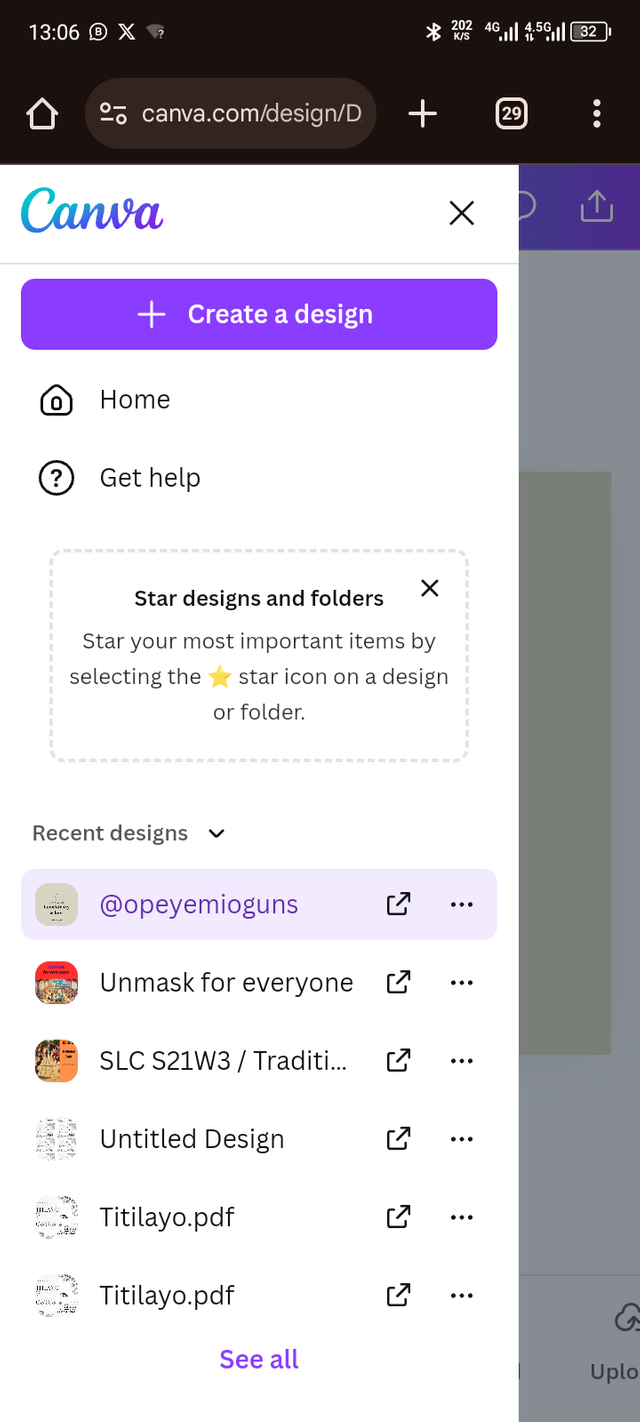
On canva, I clicked on the 3 lines at the left Conner of my phone and it gave me this option and I created new design
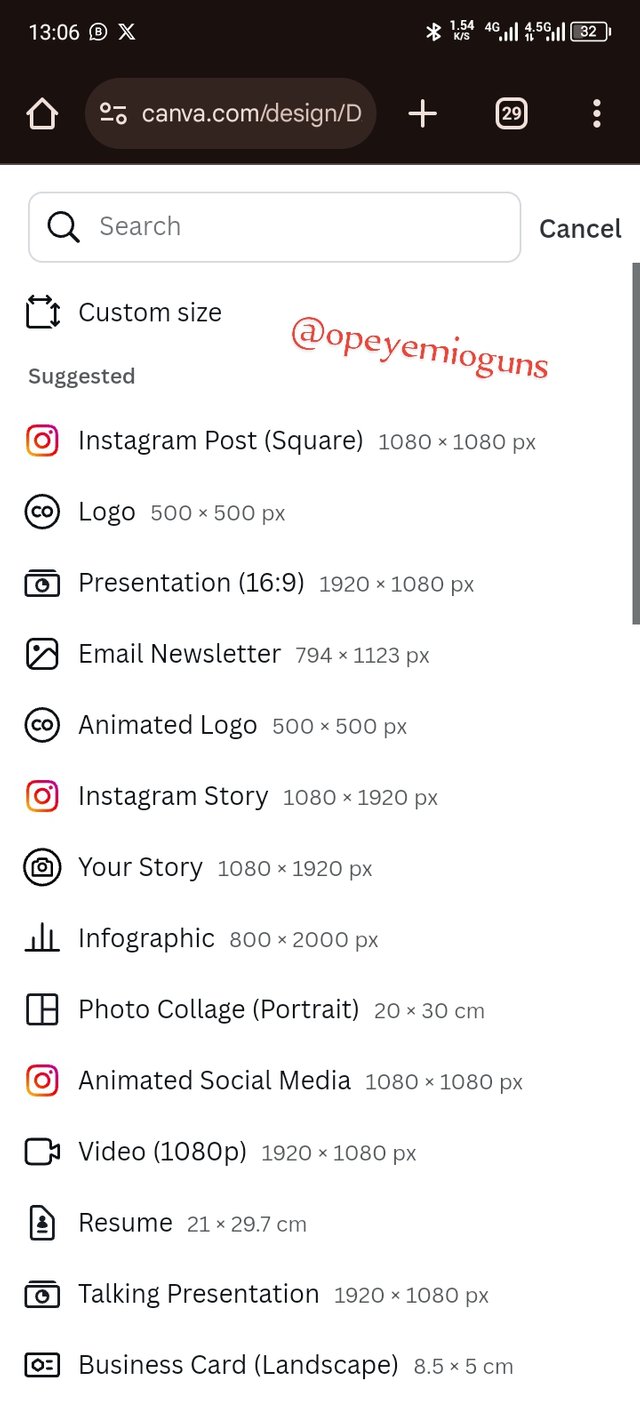
Normally, I always choose that Instagram size
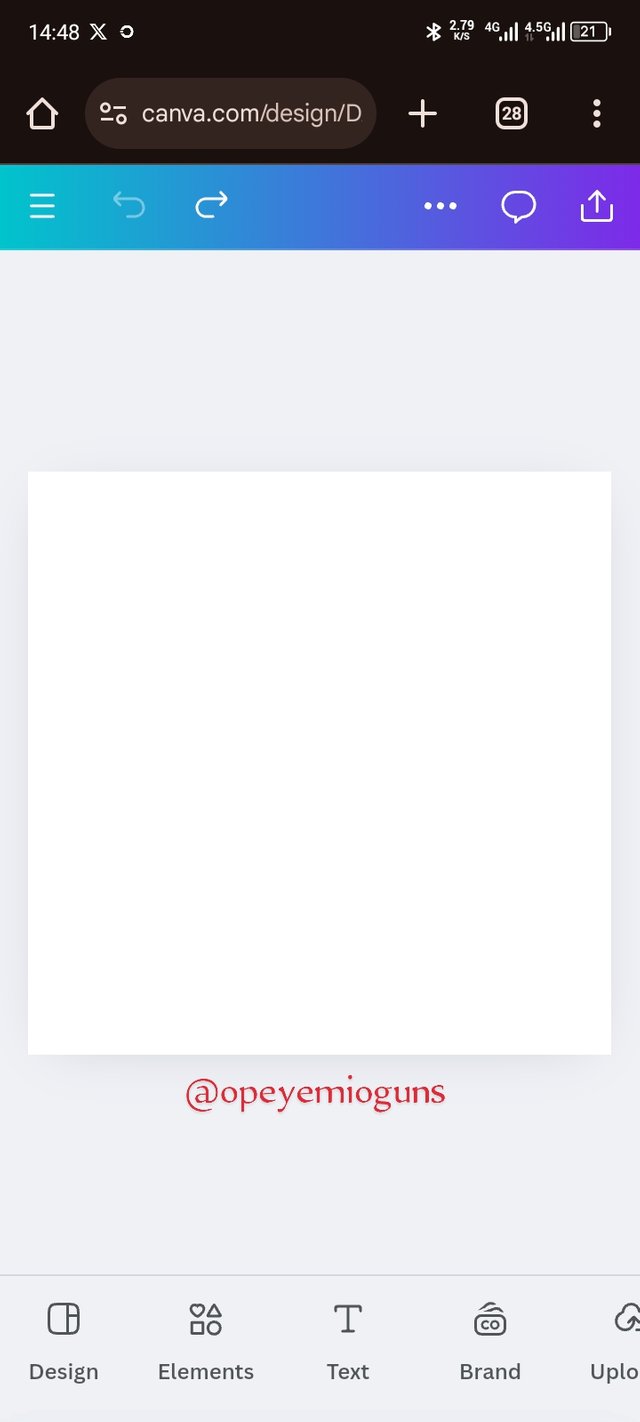
Blank page and the size that I want to make my design on
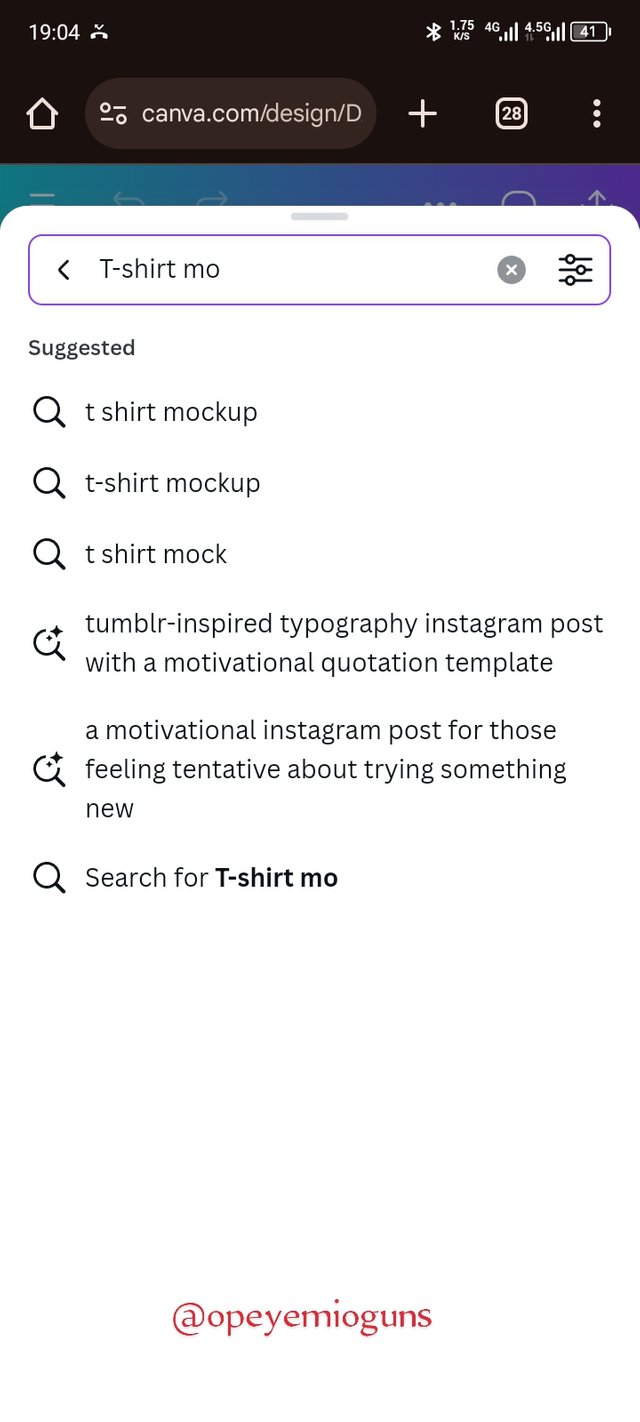
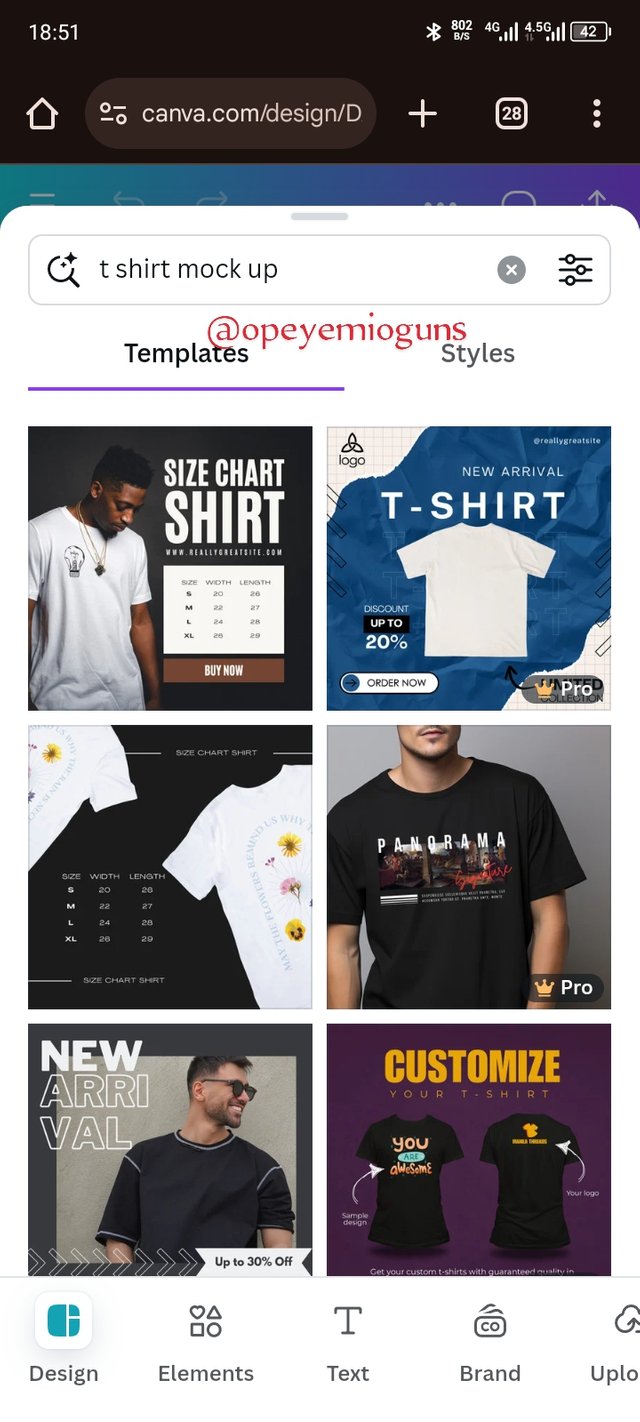
I searched for T-shirt and it game me different designs to choose but I'm a broke guy, I don't have subscription fee so I had to go for the one that is free and this is my choice
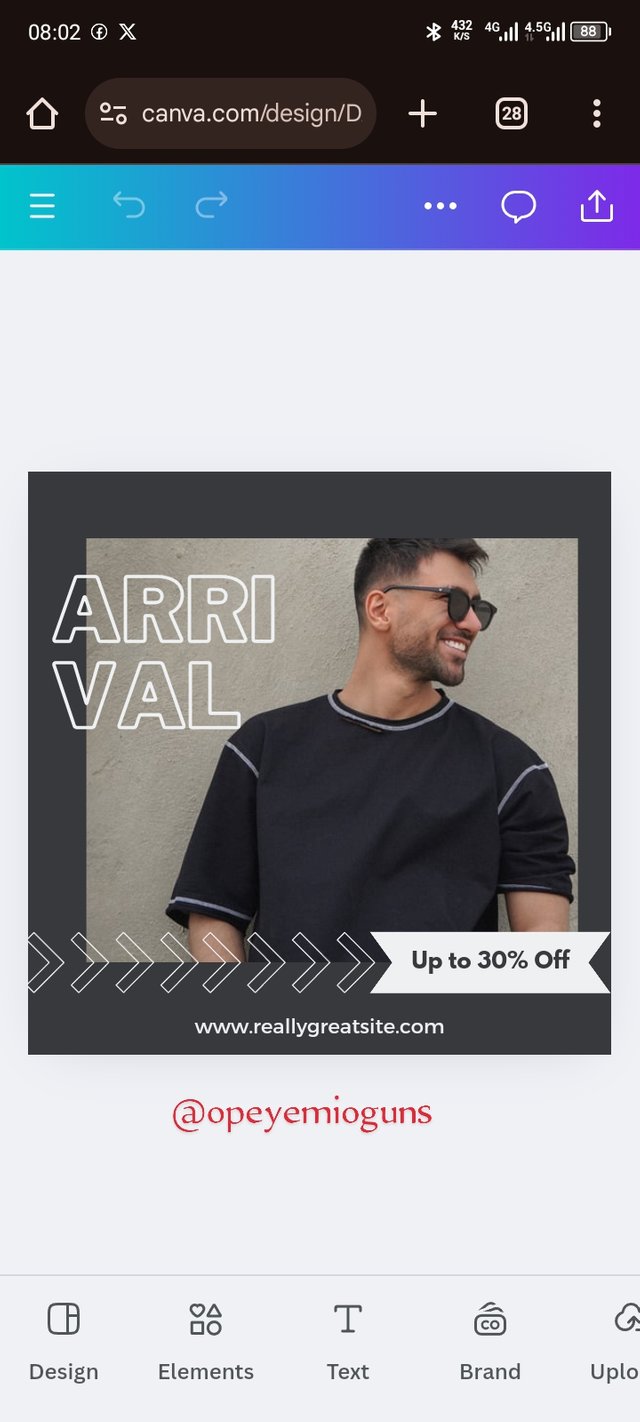
This is exactly how it was before I start my editing
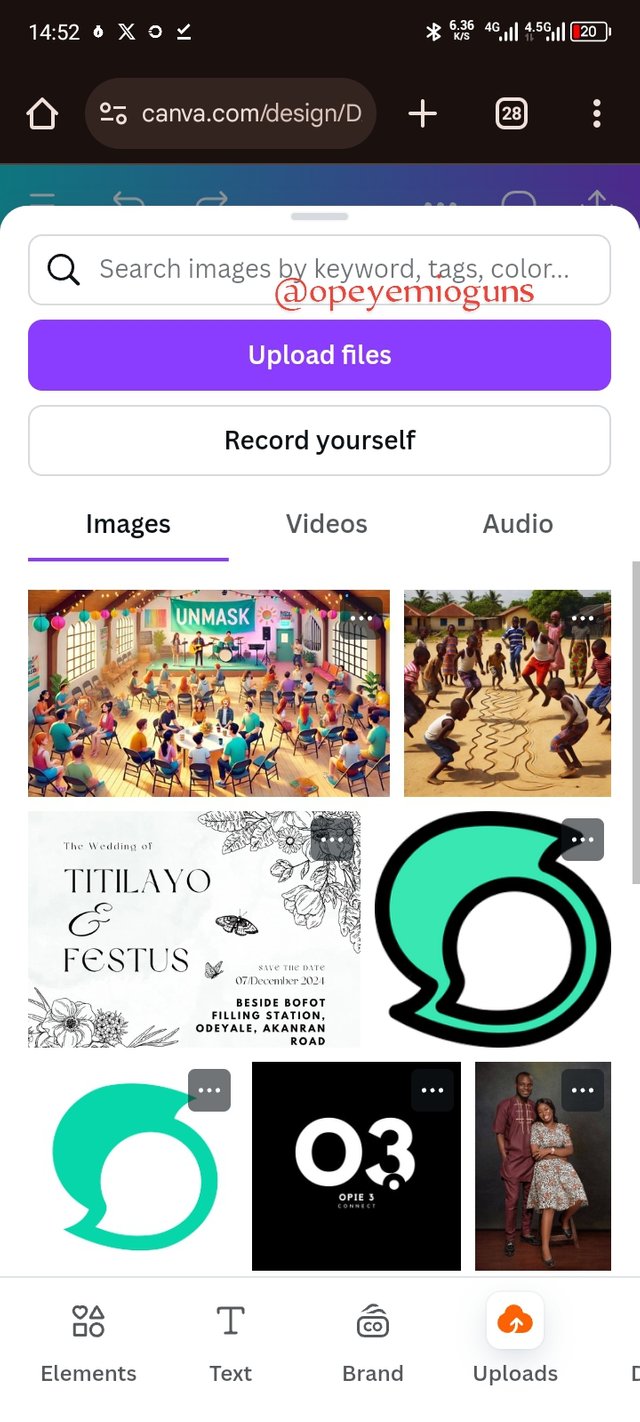
I did last week assignment and this is the logo I made, so I went to my uploaded files to pick up the logo and added it to my T-shirt editing
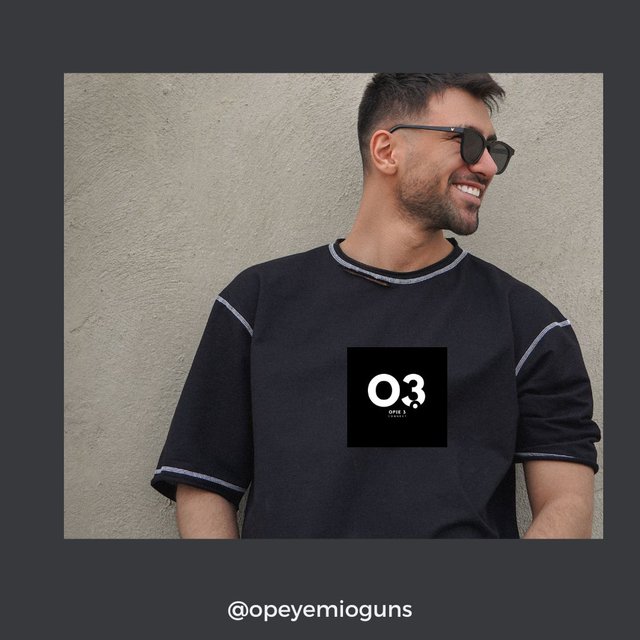
Last result
Outdoor advertisement means like "billboard mockup" that I put my design*
Like the first one, I browsed canva.com, create new design but I didn't bother to choose size since I don't know the size of billboard, I just searched the word "Billboard" and it gave me series of design to choose*
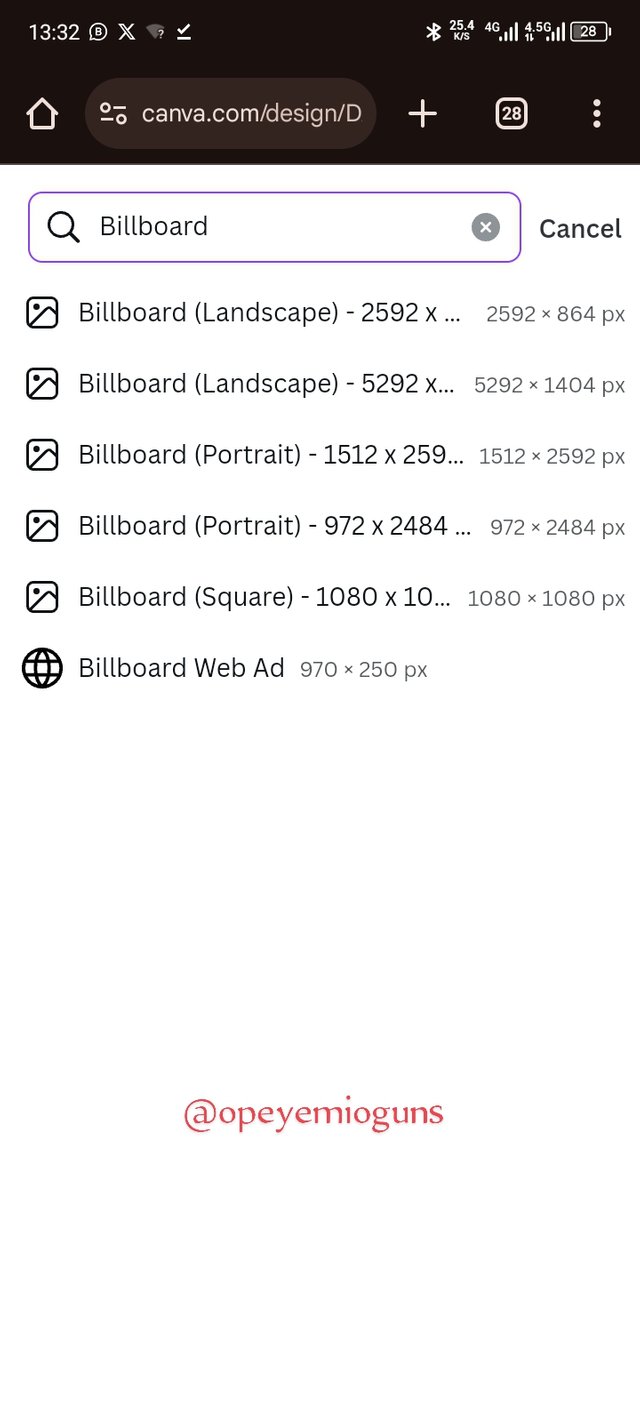
I choose the first one because it's free and beautiful
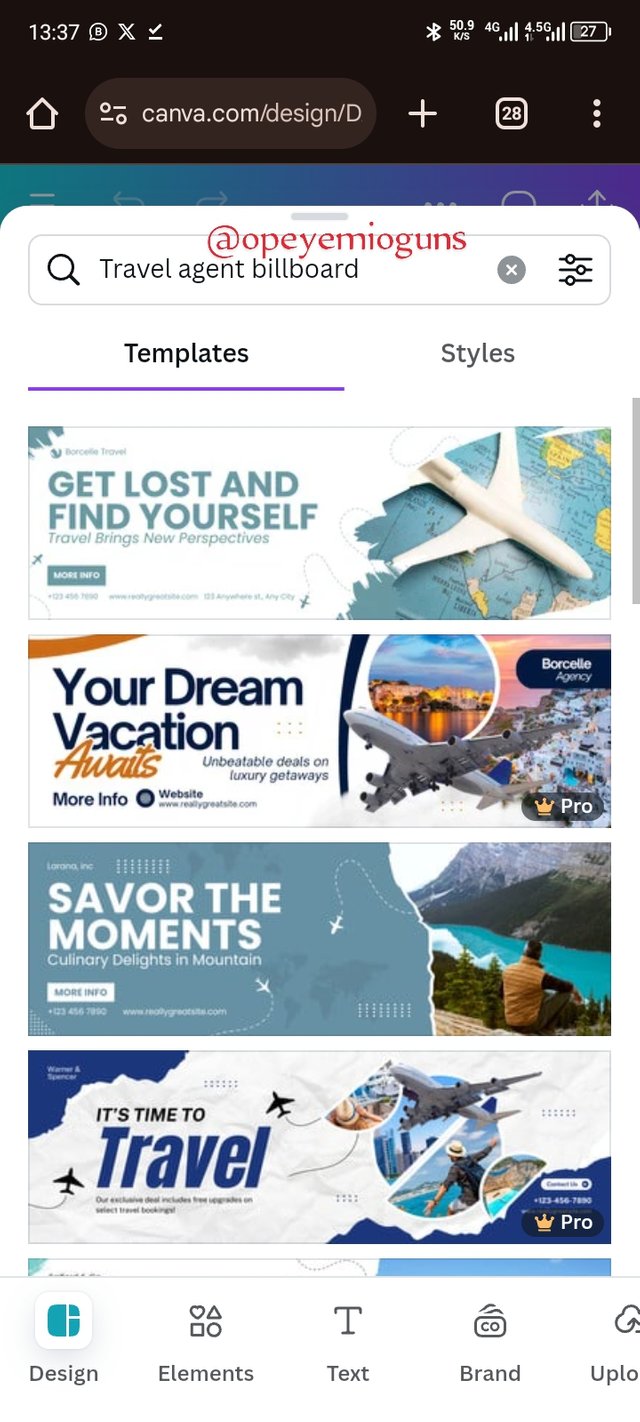
I went to upload to pick up my logo while editing the billboard and added it

Final result

Befitting mockup of my choice to promote steemit as a brand by using the steemit logo.
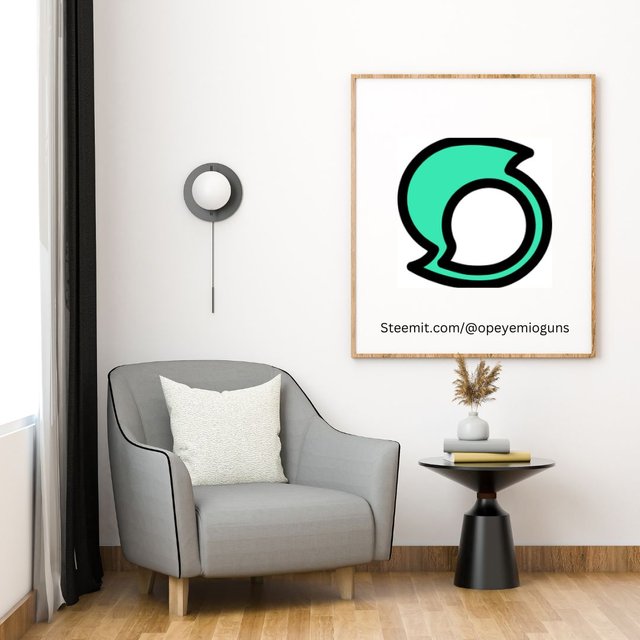
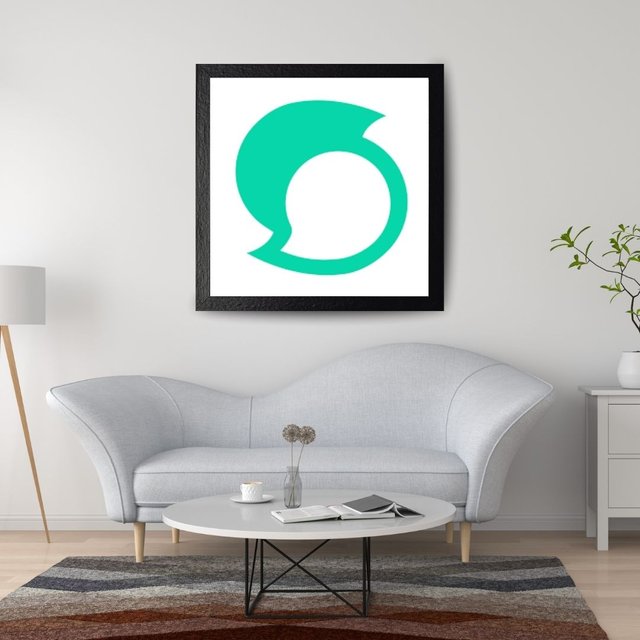
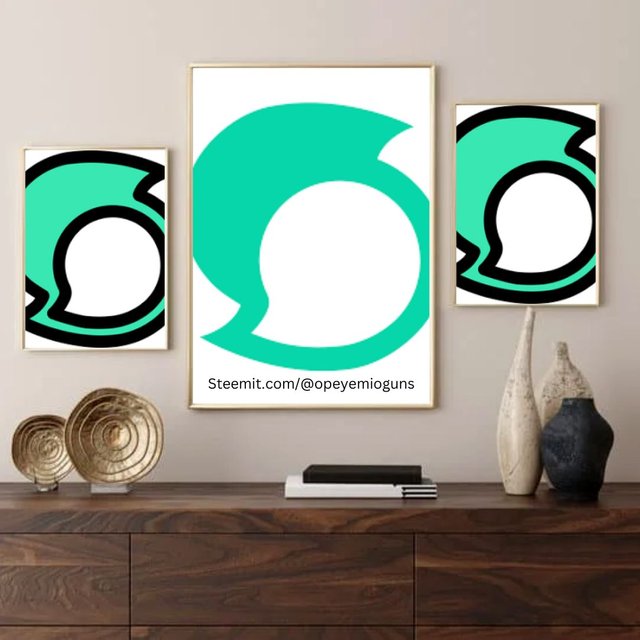
Conclusion
Concluding remarks regarding "Mockups in Design and Application" In order to bridge the gap between conceptualisation and the finished product, mockups are essential to the design and application process. They provide clients, developers, and designers with a visual depiction of how an interface or product would appear and work in the real world. Mockups help refine design aspects, ensure usability, and align expectations prior to creation by offering a tangible glimpse. Additionally, they encourage teamwork, allowing for early feedback and modifications that can save time and money. Mockups are essential tools that improve the effectiveness, precision, and calibre of the design process, whether for websites, applications, or tangible goods.
Teacher @lhorgic thanks for this.
@olawalium @princefm @olamideoguns come back and learn
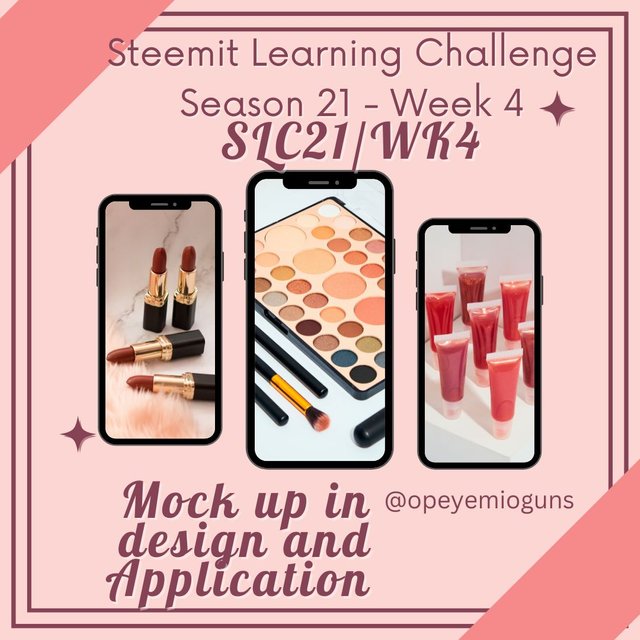
https://x.com/opeyemioguns3/status/1859648948123861483?t=44rCpN--vF0XST-U1ZEndw&s=19